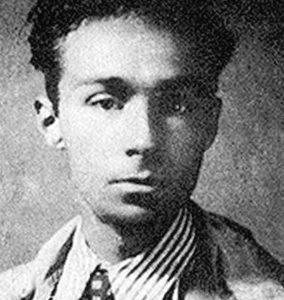This post was written by Kirsty Bailey, a second-year French and Italian student at Exeter College
Picture the scene. It is post-WW2 Italy, and two Italian Jewish writers, Primo Levi and Natalia Ginzburg, are writing about their wartime experiences. Levi was a prisoner at the Auschwitz concentration camp, while Ginzburg’s husband was killed for his anti-Fascist activism.
You might expect, in these circumstances, that Levi’s memoir, Se Questo è un uomo (If This is a Man, 1947) would be emotionally charged, with an angry or despairing narrator. While the work does pack an emotional punch, leaving the reader horrified at what the camp’s inmates were forced to endure, Levi’s narrative style is surprisingly measured – he remains calm; even detached. He seeks to analyse the situation, allowing the reader to draw their own conclusions. He never laments his own personal struggles, but reflects on the experiences of the prisoners as a collective:
“Bisogna risalire la corrente; dare battaglia ogni giorno e ogni ora alla fatica, alla fame… O anche, strazzare ogni dignità.” (“One has to fight against the current; to battle every day and every hour against exhaustion, hunger… Or else, to throttle all dignity.”)
 The narrative style of Ginzburg’s autobiographical work, Lessico Familiare (Family Sayings, 1963) is similar to Levi’s, in that the narrator never expresses outrage or despair over the atrocities of the war. Her work, as suggested by its title, is rooted in her family and friends, rather than the larger workings of history. She remains detached from her own personal emotions – even when her husband dies, she worries more about his friend, Cesare Pavese (a fellow twentieth-century Italian writer), than her own grief:
The narrative style of Ginzburg’s autobiographical work, Lessico Familiare (Family Sayings, 1963) is similar to Levi’s, in that the narrator never expresses outrage or despair over the atrocities of the war. Her work, as suggested by its title, is rooted in her family and friends, rather than the larger workings of history. She remains detached from her own personal emotions – even when her husband dies, she worries more about his friend, Cesare Pavese (a fellow twentieth-century Italian writer), than her own grief:
“Era stato il suo migliore amico. Forse annoverava quella perdita fra le cose che lo straziavano.” (“He had been his best friend. That loss may have been one of the things which tortured him”).

A sense of detachment and restraint can therefore be found in both Levi and Ginzburg’s works, despite their emotive subject matter. Their respective narrative voices succeed in remaining calm in the face of a terrifying, terrible storm – making for intriguing narratives well worth a read.
